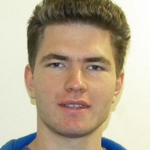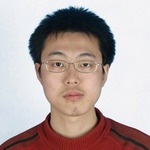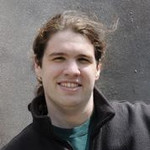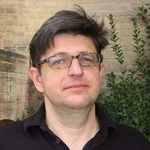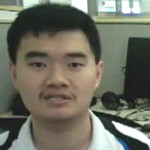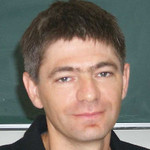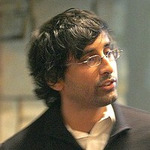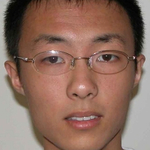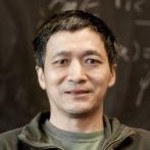| Shouwu Zhang |
Heegner points and representation theory - 12.5 years after Gross' MSRI lecture |
At a MSRI workshop in December of 2001, Gross presented a framework in which the results of
Waldspurger and Gross-Zagier can be viewed simultaneously. I will update how his framework be
used to prove a general Gross-Zagier formula, and a general p-adic Waldspurger formula, and
a general p-adic Gross-Zagier formula. |
| Henri Darmon |
The Birch and Swinnerton Dyer conjecture for ring class characters of real quadratic fields. |
Let E be an elliptic curve over Q and let χ be
a ring class character of a real quadratic field K. I will explain
the proof that the non-vanishing of the central critical
value L(E/K,χ,1) of the Hasse-Weil L-series of E twisted
by χ implies the triviality of the χ-component of the
Mordell-Weil group of E, in line with a natural Galois-equivariant
refinement of the Birch and Swinnerton-Dyer conjecture. The proof
relies on Gross-Kudla-Schoen diagonal cycles and on their variation
in p-adic families. Possible applications to the theory of
Stark-Heegner points and to explicit class field
theory for real quadratic fields will also be evoked. All of this
is joint work with Victor Rotger. |
| Akshay Venkatesh |
Derived Hecke algebra |
We describe a derived version of the Hecke algebra that acts
on the cohomology of an arithmetic group but doesn't preserve degrees. |
| Gordan Savin |
A period problem related to Bhargava cubes. |
Building on a work of Bhargava, we interpret twisted Bhargava
cubes in terms of twisted composition algebras: just as a symmetric
matrix gives a quadratic form, a twisted Bhargava cube gives a twisted
composition algebra. The space of twisted Bhargava cubes appears as a pre
homogeneous space in a group of absolute type D4. The interpretation of
Bhargava cubes in terms of twisted composition algebra is then used to
study exceptional theta correspondences for dual pairs where one member
of the pair is D4. This is a joint work with Wee Teck Gan. |
| Hang Xue |
On the Gan-Gross-Prasad conjecture for U(n) x U(n). |
We prove the Gan-Gross-Prasad conjecture U(n) x U(n) under some local
assumptions. We also formulate a refined conjecture and prove it in
certain cases. |
| Chao Li |
2-Selmer groups and Heegner points. |
Given an elliptic curve E over Q
satisfying certain hypotheses, we use level raising of
modular forms to produce abelian varieties A sharing the same mod
2 representation as E. We then obtain a comparison between
the 2-Selmer groups of E and A over imaginary quadratic
fields. When the 2-Selmer rank of E is one, we explain
how the 2-part of the BSD conjecture predicts a link between
the 2-Selmer rank of A and certain local 2-divisibility properties of
Heegner points on E. We establish this link directly
and observe different phenomena compared to p-Selmer groups for odd p. |
| David Roe |
Geometrizing the Langlands correspondence in mixed characteristic. |
The geometric Langlands program grew out of the classic
Langlands correspondence, replacing a bijection of sets with an
equivalence of categories between certain derived categories of
sheaves. It has offered a useful perspective for algebraic groups
over function fields and fields of Laurent series. In this talk
I will describe work with Clifton Cunningham where we give a description
of characters of tori in terms of sheaves on an ind-scheme over the
residue field, and ongoing work with Cunningham and Takashi Suzuki toward
offering versions of the affine Grassmannian and affine flag variety for
mixed characteristic local fields. We hope to adapt the theory
of character sheaves from finite fields to p-adic fields, and to find
new constructions of supercuspidal representations of p-adic groups. |
| Eric Urban |
On some p-adic distribution of automorphic periods. |
In this lecture, I will explain a construction of certain p-adic
distributions that interpolate automorphic periods attached to p-adic
families of automorphic forms. I will present some general conjectures
on the behavior of these distributions and their consequences in some
special case to study central values of L-functions. |
| Yiannis Sakellaridis |
The L-group of a spherical variety. |
The "relative Langlands program" attaches an L-group to a
spherical variety, generalizing the L-group of a reductive group. This
L-group is used in conjectures about the local and automorphic spectrum of
the variety. This will be an expository talk, describing the definition
of the L-group and, time permitting, some other invariants attached to
the variety, such as a local unramified L-value. |
| Ioan Filip |
A local relative trace formula for spherical varieties. |
We introduce a relative trace formula for spherical varieties
in the local setting. We focus on rank 1 cases, and discuss applications
to the Gan-Gross-Prasad conjectures and their refinements. |
| Cheng-Chiang Tsai |
Orbital integrals and local character expansions of supercuspidal representations. |
For a reductive group G over a non-Archimedian local field with
residue characteristic p sufficiently large, we propose an algorithm to
compute certain orbital integrals in terms of number of rational points
on specific subvarieties of flag varieties over the residue field. As
an application, we show by example how this algorithm together with the
character formula of Adler and Spice may be used to compute the local
character expansions of supercuspidal representations of G constructed
by Yu. This is joint work with Zhiwei Yun. |



